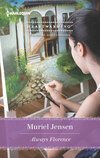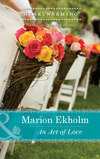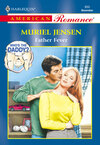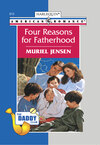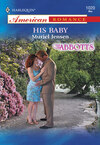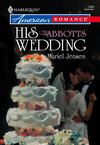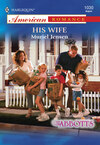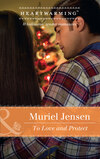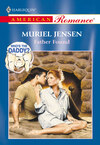Читать книгу: «Always Florence»
Not even love can keep her from her dream
Bobbie Molloy’s dream to paint in Florence gave her the strength to battle cancer. Now that she’s recovering, and just weeks away from leaving for Italy, she won’t let anything—or anyone—stop her from making that dream come true. Not even Nate Raleigh.
From the moment he rushes in to save what’s left of her studio—after his young nephews had inadvertently trashed it—next-door neighbor Nate has Bobbie intrigued. Everything about him is complex and endearing: two excellent reasons to keep her distance. She can’t risk getting involved when she’s just passing through. Her dream has kept her alive and it has to come first. No matter what the cost.
He’s gorgeous.
Bobbie could have thoughts like this with the comfortable distance of a woman who didn’t really care. Now that much of the mess was cleaned up and she felt calmer, she could observe Nate with detached interest. Tall, lean, hazel eyes with stubby lashes, nice nose, Saturday-morning stubble around a straight mouth that was a little tight. He didn’t smile much. She was willing to bet he had a dynamite smile when he used it.
She wondered what had happened that his nephews were living with him. He seemed to be good with them, although she sensed an undercurrent of antagonism from the older boy.
She could list Nate’s qualities without a stirring of feminine interest because she had a life plan that didn’t involve a husband and children. She was going to Florence, Italy, to study art. It had been a dream since she was sixteen, and the past year had turned it into an obsession. She was in remission, but she didn’t have forever. She had to go now. The need to make art lived inside her, trying to break out, and she had to follow the masters to study and learn. To find the depths of her talent.
Bobbie watched the three walk across the yard to the big yellow house next door, the man and one of the boys hand in hand, the dog lumbering along beside them. She smiled at the sight.
Nice, but not for her.
Dear Reader,
Hello, again! I’m thrilled to be back at Harlequin. Life took me away for some time, but I’m delighted to return with a book to offer you.
My younger sister, Diane, is a cancer survivor. I thought her very heroic in her battle and when I was asked to come up with an idea for a Harlequin Heartwarming book, her struggle came to mind. Combining her experience with my husband, Ron’s, career as an artist was an easy leap. My hero’s work as a CPA comes from my last seven years as a receptionist in an accounting firm.
So, my heroine wants to travel to Florence to learn about the artist inside her, and my hero has custody of his two little nephews and a business and must stay home. What to do?
Love, of course, will find a solution.
Best wishes to you!
Muriel Jensen
Always Florence

Muriel Jensen
MURIEL JENSEN
Muriel Jensen and her husband, Ron, live in an old foursquare Victorian looking down on the Columbia River in Astoria, Oregon. They share their home with Cheyenne, a neurotic husky mix, a tabby hoard (there are only two, but they seem like more) and Rosie, a stray cat who’s been coming and going for years and still doesn’t trust them. Muriel says she helps keep alive those complicated inner workings of a mind dealing with a troubled past that is the source of all good plotting!
They have three children, eight grandchildren, four great-grandchildren and a collection of the most interesting and generous friends and neighbors. They feel truly blessed!
MILLS & BOON
Before you start reading, why not sign up?
Thank you for downloading this Mills & Boon book. If you want to hear about exclusive discounts, special offers and competitions, sign up to our email newsletter today!
Or simply visit
Mills & Boon emails are completely free to receive and you can unsubscribe at any time via the link in any email we send you.
To Mike and Suzanne, and the staff at WWC Business Solutions, who kept me employed (and fed!) and Jim Defeo and Tony Danton and the staff at the Astoria Coffee House who provided a port in the storm while my leg was broken.
Contents
CHAPTER ONE
CHAPTER TWO
CHAPTER THREE
CHAPTER FOUR
CHAPTER FIVE
CHAPTER SIX
CHAPTER SEVEN
CHAPTER EIGHT
CHAPTER NINE
CHAPTER TEN
CHAPTER ELEVEN
CHAPTER TWELVE
CHAPTER THIRTEEN
CHAPTER FOURTEEN
CHAPTER FIFTEEN
EPILOGUE
CHAPTER ONE
“WHAT’S SHE DOING?” Sheamus Raleigh, seven years old, hid with his brother behind a balding rhododendron and watched the woman at work in the garage next to theirs on the shared double driveway.
Dylan, ten, was a little mystified by the very large pot at her feet and the big stick she used to stir whatever was inside. He’d wondered about her since she’d moved in last month, but Uncle Nate said she seemed to want to keep to herself. Sometimes she smiled at them if they were getting into their cars at the same time, but she never spoke or waited to see if they wanted to. His uncle said they’d skip her house when they went trick-or-treating next week. That she had a right to be private if she wanted to.
So they didn’t know why she always wore baggy black clothes and a woolly hat. Or why she always worked in the garage with the door open and kept the car in the driveway. There were strange noises when she worked, and she chanted. Whatever she was doing was probably just weird and not bad, but the chance to mess with Sheamus was too good to pass up.
“That’s a cauldron,” Dylan said, in the knowledgeable tone he used to let his little brother know he was still in charge. He didn’t really feel that way anymore. Nothing was the way it used to be. Their parents were gone. Their uncle, who used to be so cool, now made their lives miserable. And worst of all, Dylan didn’t seem to know things anymore. Before the accident, he’d started to feel he was beginning to understand how being with people worked. Then his parents had died, and now his life was like a big black hole. Unless he was working on one of his experiments, or making Sheamus cry.
His brother deserved to cry. He was afraid of everything. And it wasn’t a world for sissies.
“What’s a cauldron?” Sheamus whispered. He put an arm around Arnold, their uncle’s apricot mastiff mix, who went everywhere with them. They weren’t supposed to be in the neighbor’s yard, but Dylan didn’t care about that. His uncle was always mad at him. Well, not mad exactly, but he acted as if he didn’t understand him. And that was dumb. Adults were supposed to understand kids.
Dylan made a big circle with his arms. “One of those pots witches use to make potions and things.”
Sheamus’s blue eyes were huge. “You mean like on the card Stella gave us? With the bugs and bat wings going into the witch’s pot?”
“Yeah. Just like that. Only this lady’s probably got kid parts in there, too.”
Sheamus’s eyes got wider. “What kids?”
“I don’t know. Kids she kidnapped and locked in her house.”
Sheamus stood up, getting panicky. Arnold got up with him. Dylan’s plan was starting to work. He felt a twinge of guilt, but it was easy to get past that. Sheamus had blond hair like their mom and his eyes were the same color hers had been. It was easy to hate him.
He yanked his brother back down again. Arnold stood poised for action. “It’s all right. She won’t want you. Only brave kids go into the pot, because the potions are to make big things happen. Like explosions and lightning. It doesn’t work with fraidy kids.”
Sheamus’s eyes brimmed with tears and his lip quivered. Dylan knew his brother was curious to know what the woman was doing, but too afraid to find out. He pointed to the big bush at the edge of the driveway, very near the garage. “Let’s go get a closer look.”
“No!” Sheamus tried to grab his arm, but Dylan shook him off. He waited until the woman leaned the stirring stick against the pot and turned to get a glass of something red from a shelf behind her. Then he covered the distance in a military crouch.
Unfortunately, at the same moment a big orange cat leaped onto the shelf near the woman’s drink. Uncle Nate said mastiffs were usually lazy, but Arnold was half Labrador retriever, and Labs never missed an opportunity to cause trouble.
Arnold leaped for the cat with an excited bark. The woman fell back against the shelf and screamed. The red drink flew, the cat screeched and the sound of tumbling lumber filled the air as woman and shelf crumpled together. Dylan heard Sheamus run for the house, yelling for their uncle.
He should have run, too, but he was stunned by how much destruction that one leap had caused. Before he could plot his escape, he was hauled to his feet by a hand that wasn’t much bigger than his, but very strong. The hat had come off the woman’s head and the red stuff was running down her face. She had brown eyes that looked mad.
Great. He was probably facing another night without his Game Boy when his uncle heard about this.
* * *
NATE RALEIGH PACKED the dishwasher and thought back to what Saturday mornings used to be like, back in the Portland Pearl District. Actually, he’d slept through them, because Friday nights had been all about dating and the Brody Theater, dinner at the Park Kitchen and friends going back with him to his condo looking over the river.
Saturdays hadn’t begun for him until lunch at the Dovetail Bakery with a client who had some payroll or accounting issue that couldn’t wait until Monday. He’d prided himself on being able to resolve them, or if not, he’d mull over possible solutions with his brother. Ben always had an answer.
God, Nate missed him. And not just as a partner at Raleigh and Raleigh Accounting Services. Mostly he wished his brother was here to tell him how to deal with his boys....
Ben had been two years older than Nate and the kind of kid, and then man, who seemed to know instinctively what to do about everything. Of course, it had been more than instinct. In school, he’d studied all the time and done extra work because he found everything about accounting and finance exciting.
As an adult, his gift in the field had taken their small tax-return business in a strip mall to the fourth floor of an elegant downtown Portland office complex, where they offered a multitude of accounting and estate planning services. They eventually opened an Astoria office on the Columbia River and two more down the coast.
Pain stabbed at Nate. As an anniversary gift, he’d given Ben and Sherrie the charter fishing excursion that had ultimately taken their lives. Guilt, combined with a terrible loneliness and a dark anger he couldn’t shake, were braided into a sort of barbed-wire band around his chest.
He had to fight his way through every day. He usually managed to put the pain and loneliness aside, but the anger was always there. That was the hardest to deal with. He’d been the cheerful Raleigh, the charmer, the one who saw the upside of life.
Now he was mad all the time. He understood the source of his anger, but seemed powerless to overcome it. He was mad at Ben for dying, mad at himself for having given him a gift that placed him in harm’s way and not knowing how to cope with that, and mad at the boys because they reminded him of Ben and him all those years ago.
He was able to live day to day without yelling at everyone, but suppressing the inclination was exhausting. He didn’t know what to do about it, so he just kept going—sad, mad and, much as he hated to admit it, a little lost.
Nate added soap to the dishwasher, let the door close with a slam, and set the dial. “Suck it up, buttercup,” he told himself.
Saturday nights, he recalled, continuing to torture himself, had pretty much been the same as Fridays, but Sundays had been about football at Fernhill Park, then pizza and beer at Mississippi Pizza.
Now, Stella Bristol prepared most of their meals. She was Hunter Bristol’s mother. Hunter had helped run the Astoria office of Raleigh and Raleigh with Ben before Nate had given Ben and Sherrie the charter boat trip to celebrate their thirteenth wedding anniversary. They’d met aboard a similar boat fifteen years previously. Nate had volunteered to stay with the boys so that his brother and sister-in-law could enjoy a romantic dinner and watch the sunrise as they’d done the night they met.
Instead, a sudden squall and the captain’s belated decision to return to port had resulted in the loss of the boat and everyone aboard. One of the witnesses to the sinking had said that Ben dived under the boat over and over, presumably in search of Sherrie, and finally just didn’t come up again.
Nate stayed with the boys in their home and took his brother’s place in the Astoria office. And the life he’d known was gone forever.
That was all right. He knew his nephews had lost far more than he had, but the life he’d led had not prepared him for the life he’d inherited.
The accident happened to coincide with Stella’s recovery from hip replacement surgery, and a desire to find useful work. She had no nanny experience, but she’d kept house and raised children. Nate figured that qualified her.
He just wished he felt more comfortable in his position as stand-in father. He’d gotten along so well with the boys when he’d simply been their uncle. Now that he had to make rules, they didn’t like him. Stella reminded him over and over that parenthood wasn’t a popularity contest, but he could see grief in their young eyes and hated the knowledge that he seemed to exaggerate it rather than relieve it. He strove to keep the anger he struggled with himself out of his voice and his touch, but in the end the boys had their own anger issues to deal with.
He awoke every morning determined to do better that day. Usually, he was shot down by 10:00 a.m. Either he got in the way of one of Dylan’s MythBusters-wannabe experiments that was eventually going to kill them all, or Sheamus burst into tears because Nate sent him back upstairs to get his jacket before letting him out to play. Sheamus was convinced there was a monster in his bedroom closet.
They’d at least reached a temporary solution for the monster issue by putting Sheamus’s jacket in the downstairs closet.
Nate picked up toy cars and trucks off the living room floor and was about to put them in a big wooden box next to the fireplace when he heard Sheamus’s shrill shout: “Uncle Na-a-ate!”
It had taken Nate a month in his role as guardian to realize that the boys’ bloodcurdling shouts didn’t necessarily mean death or dismemberment. They might just want a banana or a pudding pop. So he dropped the toy vehicles carefully into the box and was heading for the kitchen when the door burst open and Sheamus appeared. His blond hair stood up in spikes. His blue eyes were filled with terror.
He pointed a grimy finger in the direction of the backyard. “The witch’s got them!” he said breathlessly, his bony chest heaving under his Seattle Mariners sweatshirt. To add emphasis, he grabbed Nate’s arm and pulled him toward the door. “Hurry!”
“What witch?” Nate drew Sheamus back to him, then got down on one knee. “And got who?”
“The witch next door! Dylan and Arnold! She’s not just a lady, she’s a witch! And she’s stirring a pot with bat wings and spiders and feet from little kids!”
Nate felt a familiar exasperation at his younger nephew’s never-ending terrors. A four-letter word sprang to his lips, but his one success since moving in with the boys was that he’d cleaned up his language.
He caught the weeping seven-year-old by the hand, slapped the back door open and headed across the yard, ready to put an end to this latest fear.
“See!” Sheamus pointed to the little tableau near their neighbor’s garage. The woman, who never spoke to anyone, had Dylan by the arm and was leaning over him, her expression angry.
Nate stopped Sheamus at the edge of their property, dropped his hand and told him not to move, then covered the distance to Dylan and their neighbor in three long strides. He circled the woman’s wrist with his thumb and forefinger, pulled her hand from Dylan and moved the boy behind him.
“Is there a problem?” He tried to sound reasonable, but Dylan looked worried and Nate’s protective instincts flared.
The woman looked up at him in surprise and opened her mouth to speak. No sound came out for a moment, giving him time to study her. She’d been an enigma for the four weeks she’d been here.
She was usually dressed in a baggy black sweatshirt over skinny black pants, and he hadn’t realized until now how slight she was, how pale. It was the first time he’d seen her without a hat pulled down to her eyebrows. Her hair was very short, very dark and all tight little curls. Something red and sticky covered her face, but the overall impression she made was one of fragility.
This was the first time he’d been close enough to look into her eyes. They were wide and brown, with a whole range of emotions he no longer felt qualified to analyze. He’d once prided himself on a respectable knowledge of women, but he hadn’t spent much time with any since he’d moved in with the boys. And he was angry about everything, anyway. As he recalled, women preferred good-natured men.
He did think he saw fear in her velvety gaze, and realizing he still held her wrist in a firm grip, he let it drop. Whatever had happened, he’d be willing to bet his season tickets to the Timbers that it was Dylan’s fault. He handed her a tissue from the wad he’d started keeping in his pocket. “I’m sorry,” he said. “What’s the problem here?”
* * *
BOBBIE MOLLOY ACCEPTED the tissue with a grudging “thank you” and a scolding glance at the dark-haired boy. “It’s not a problem, exactly.” As she wiped her face, her fingertips brushed the fine hair on her head. She looked around for her hat and found it on the ground, covered in grass and raspberry-hibiscus tea. She tossed it at a small table—the only thing nearby that hadn’t been overturned.
“Your son was spying on me,” she explained, “and your pony destroyed several days’ work and tried to kill my cat.” She indicated the collapsed shelf behind her, most of the tools and supplies it had held now floating in her pot of paper pulp. Monet, her orange tabby, looked down on them from the top of the oil tank against the wall, tail swishing. Below him, the giant dog with its black muzzle and wide mouth, black tongue lolling, studied the cat.
Bobbie looked over the destruction. Stress was her enemy, so she drew several steadying breaths. To be fair, the man Sandy had told her was new to the neighborhood—almost as new as her—appeared to be as frustrated as she felt.
And he was looking at her hair. It had grown back to at least cover her scalp in a cap of tight curls, and her eyebrows were back. She looked better than she had a couple months ago, but the glossy, shoulder-length hair in her art school graduation photo was a thing of the past. Worse, she knew her face showed the wear and tear of chemotherapy and radiation.
She hated that she cared. Cancer survival, and life in general, were all about what you had inside, not what adorned you outside. But she’d never get over her love of clothes and makeup and all things girlie. Though she was an artist and wore grubbies when she worked, she loved to dress up. In the past, that had earned her admiring looks, but these days it was easy for others to see what she was dealing with. Most men took an unconscious step back. Cancer was scary stuff. No one wanted to be near it if they could help it.
This man, though, stood his ground. It was entirely possible he hadn’t figured it out yet. Sandy had told her she had a handsome, single neighbor and Bobbie had told her she didn’t want to hear anymore. Sandy had tried to add interesting details but Bobbie had refused to listen. He called the dog to him, told him “sit!” and patted his head.
“I’m sorry. Arnie is very big and can’t help making a mess. But he wouldn’t hurt a flea.” Her neighbor turned slightly to catch the arm of the boy he’d placed protectively behind him and pulled him forward. “This is Dylan. He’s fascinated by everything. I’m sure he didn’t mean any harm.” He gave the boy a firm look. “But it isn’t polite to spy on people. Please apologize.”
Dylan folded his arms. “She was chanting while she was stirring,” he said. “People who aren’t witches don’t usually do that, do they?”
Chanting. Bobbie had to think about that a minute. Then she realized what he must have heard, and had to laugh. “Okay, I don’t have a great voice. But I was singing to ABBA.”
“Who?”
“ABBA,” the man repeated for her. “Remember when Stella made us watch Mamma Mia for her birthday? The movie about the wedding in Greece and all the singing?” When the boy winced and nodded, he explained, “That was music by a group called ABBA. They’re from Sweden.”
“Weird name.”
“Yeah. There are four members and I think it’s their first initials. About the apology...”
Dylan complied. “I’m sorry.” Then he added to Bobbie, as though it was important, “I’m not his son. I’m his nephew.”
“Oh.” She’d been watching them come and go for the past month and assumed they were father and sons. She hadn’t noticed a woman, except for the older housekeeper. “I just assumed...”
The man extended his hand. “I’m Nate Raleigh,” he said.
“Bobbie Molloy,” she replied.
Seeing the handshake, the younger boy apparently felt it was safe to come closer. He hid behind his uncle’s arm and pointed to the garage. “What’s in there?”
“This is Sheamus,” Nate said. “I’m sure he wants to apologize, too.”
She smiled at the boy and made a conscious effort to be understanding. “Hi, Sheamus. That’s my studio. I’m an artist.”
“You paint pictures?” Dylan asked.
“Sometimes. Other times I use clay and sculpt things. Right now I’m making paper.” She pointed ruefully at the mess behind her. “I’d show you, but I think I’m going to have to start over.”
Sheamus looked confused. “You’re supposed to buy paper in the store.”
He had a pinched little face and the most beautiful light blue eyes. His brother was darker featured, like his uncle. And there was nothing pinched about him. He gave an impression of energy and attitude.
She gestured to the boys to follow her to the pot, where she pulled out pieces of shelving that had fallen into her soaking pulp. They dripped with the mucky grayish mixture, and she put them aside on newspaper she’d spread earlier to protect the garage floor.
She took the old oar she used for stirring and swept it through the contents. “This is paper pulp, and I stir it and sort of beat it with this to break it down. It’s made of linter and...” She saw that she was losing them and backed up. “It’s stuff we get from a cotton plant, and when I mix it with water and do a few things to it, it makes beautiful paper. That’s how they used to make it in the old days. When it’s ready, I dry it on a rack.” She moved over to show them a sheet that was already drying. Fortunately, the flying debris had missed it and the precious, specially made frame it was drying on.
“But this isn’t the old days,” Dylan said. “Why do you do it this way?”
“Because I have a commission,” she replied, her spirits buoyed a little as she talked about it. “I make this special paper and paint a saying on it, then put it in a frame.”
Sheamus looked up at his uncle. “What’s a commission?”
“When somebody hires an artist to make a special picture, that’s called a commission. And when the work is done, the artist is paid.”
Dylan asked, “Artists don’t always get paid?”
“Sometimes artists make things they think people will like and put them in a gallery—that’s a place where they sell artwork. The artist only gets paid if somebody buys it. And then he or she shares the money with the gallery.”
“Who hired you?” Dylan asked Bobbie.
“A law office in Astoria. A friend of mine from college works there. She showed them something I made for her birthday, and they hired me to do four pieces for their conference room.”
Dylan looked around at the mess. “So, you won’t get paid until this is finished?”
“Right.” She appreciated the distress on his face and felt herself begin to relax a little. “But I know this was an accident. I have one big piece in the house that’s already dry, and I’ve got one piece drying here that seems okay. I’ll do the calligraphy on those while I’m getting more pulp ready. It’ll work out all right.”
“Calligraphy?”
“It’s like painting words, only you do it with a pen with special tips instead of a brush.”
“Well, we’re going to help you clean this up.” Nate pushed up the sleeves of his plain gray sweatshirt. “Come on, guys.” He pointed the dog to a spot on the lawn. “Stay, Arnold.” He turned to Bobbie, all business. “Where’s your garbage can?”
“You don’t have to clean up. I...”
He wasn’t listening. He went to the side of the garage, then peered inside and saw the can at the back. He stepped carefully over the rubble and carried the can out to the grass. “You separate what has to go from what can be fixed. We can replace that shelving for you.”
She got down on her knees and began to sort through the broken earthenware pots and saucers, the rusty tools, the old army blankets she used for her paper press. “Thanks, but I can put up new shelves. Most artists worth the name are carpenters, too. Otherwise we spend a fortune on stretchers and frames.”
“But you didn’t break it, so you shouldn’t have to fix it. And Dylan’s pretty good.”
As his uncle began tossing into the can the things she put aside, Dylan looked surprised, then pleased by the compliment. But his pleasure showed for only a moment. He bent over the broken shelf. “We have boards left from a bookshelf we made for Uncle Nate’s room.” He turned to him. “Can we use those?”
“Go ahead,” Nate said. He looked Dylan in the eye. “Nothing fancy, okay? No power tools. Those boards should be just the right size, but measure them against the old one. If anything needs cutting, call me.”
Dylan picked up two pieces of a broken shelf and headed off to the basement entrance at the side of their house.
Bobbie wondered if trusting the boy to do as he was told might be a stretch after what she’d experienced, but she was sure his uncle knew the risk. He watched Dylan head off, mild concern pleating the spot between his eyebrows.
“You can go with him,” she suggested as she dropped a rag into the can. “Sheamus and I can take care of this.”
Nate shook his head. “No. Dylan would hate that. I put the power saw away after he cut my workbench in two on his last unapproved project, so he’ll be okay.” He turned his attention to Sheamus and nudged him with his elbow. “I’m not finding any kid feet, are you?”
Bobbie reached for the broom and turned, certain she’d misheard them. “What? Kid feet?”
Sheamus looked into the pot of now brown, mucky pulp, then smiled up at her. “Dylan told me you were a witch and that you were making a... I forgot the word. It’s the stuff that a witch has in her big pot and it makes explosions and lightning and loud noises.”
“A potion?” Bobbie guessed.
“Yeah. And he said you put bats and bugs and parts of little kids in it.”
Bobbie was aghast. She hadn’t spent that much time with children, except for the few she’d met when she had her treatments, and they were, sadly, very adult. She was startled by what went on in the minds of little boys.
“I promise I’m not a witch,” she told Sheamus seriously. “That was probably pretty scary for you to think that.”
He shrugged a small shoulder. “Dylan said you wouldn’t take me, because only brave kids would work.”
She saw his uncle straighten up from the trash can and frown. “You ran to get help when you thought your brother was in trouble,” he said, patting the little boy’s head. “That was brave. Come on and help me clean off this table. Grab that brush and dustpan.” He pointed to the ancient set propped in a corner that had been in the garage when she moved in.
After salvaging what she could, Bobbie went inside and put half the brownies she’d made that morning into a freezer bag, and took it out to Nate and Sheamus. They were placing the lid on the trash can. The garage floor was remarkably clean. Nate carried the can back to where he’d found it.
“What do you want to do with the ruined pulp?” he asked, peering into the pot. All kinds of dust, shavings and debris were now mixed in its murky contents.
“I’ve got an old plastic bucket with a lid.” She pointed to a shelf above the oil tank. Nate reached up to bring it down. “If you can pour it into that and put the lid on, I’ll keep it for later. It might still be useful for something.”
Sheamus helped him replace the lid, then he put it in a corner, out of the way.
“Thank you for cleaning up,” she said, handing Sheamus the bag.
The boy looked thrilled. “Brownies!” Arnold sniffed interestedly.
Nate dusted his hands on his jeans and thanked her. “Brownies are something all of us agree on. But I’m not sure you should be giving gifts to the kids who caused the damage.”
He’s gorgeous, she thought with the comfortable distance of a woman who didn’t really care. Now that much of the mess was cleaned up and she felt calmer, she could observe him with detached interest. Tall, lean, hazel eyes with stubby lashes, nice nose, Saturday morning stubble around a straight mouth that was a little tight. He didn’t smile much. She was willing to bet he had a dynamite smile when he used it.
Бесплатный фрагмент закончился.
Начислим
+10
Покупайте книги и получайте бонусы в Литрес, Читай-городе и Буквоеде.
Участвовать в бонусной программе

